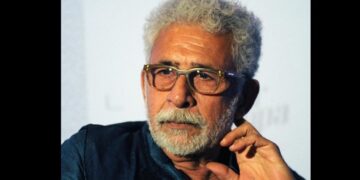The political tectonic plates in Bangladesh have been shifting, albeit slightly, in recent days.
With the ambassadors of Norway, Denmark and the Netherlands calling on Saber Hossain Chowdhury, a senior Awami League politician and former minister in the Sheikh Hasina government, there are indications of a change in the political dynamics of the country.
It is a situation that should worry the unconstitutional regime headed by Muhammad Yunus. Indeed, speculation has of late been rife about some advisors in the regime and others associated with it mulling a safe exit out of the country.
Such ideas have been gaining ground with the statements made by the elements now in the king’s party, the NCP, for these elements are clearly disillusioned by the failure of the regime to implement their plans into action in the last fourteen months.
These young people, who actively participated in Yunus’ meticulous design to remove the Awami League government from power, are now worried that those holding power at present do not leave the country.
The meeting of the three European envoys with Chowdhury comes in the wake of a recent statement by several British lawmakers on the need to ensure the return of the rule of law in Bangladesh.
That is a sign of the increasing intensity of the movement being waged by overseas Bengalis and others for a return not only to normality in Bangladesh but also toward ensuring that any future election is held through the full participation of the Awami League.
It is remarkable that a few days ago, Yunus publicly let it be known that no ban had been clamped on the Awami League, only that curbs had been placed on the party’s activities.
Of course, one of his advisors, Asif Nazrul, was quick to distance himself from his boss, arguing that the ban, as he called it, on the Awami League will remain even after the elections.
Such are the contradictions surfacing within the regime and among its dwindling band of supporters. At the other end, young activists of the banned political party and its front organisations have increasingly been getting emboldened in emerging on the streets and raising slogans against the Yunus-led interim government.
Their vociferous raising of the Joi Bangla slogan is a clear defiance of the diktat of those who usurped power in August last year. If public perceptions on social media are any indication, the interim government is sure to be caught in the whirlpool of problems in the coming months.
That is certainly a factor not ignored by the diplomatic community in Dhaka, a reason behind the three envoys calling on Saber Hossain Chowdhury.
There has, of course, not been any statement on the meeting either from Chowdhury or from his party. But there are reasons to believe that Chowdhury made it clear that any election without his party would only push the country to new levels of chaos.
He is also reported to have informed the ambassadors that his party still remains united under Sheikh Hasina and that all party programmes will be undertaken under her leadership. Chowdhury certainly has a point.
Followers of Saber Hossain Chowdhury’s party, as well as people upholding the spirit of the 1971 War of Liberation, have been coalescing around Sheikh Hasina, which is seen as a growing momentum to inform the Yunus regime as well as the party’s detractors that politics without the party will not gain any traction in the country.
Which takes one to the rather longish interview the BBC recently conducted of Tarique Rahman, the acting chairman of the Bangladesh Nationalist Party. Rahman, who has been in London for the past seventeen years since he was forced into exile by the military-led caretaker government in 2007, was cautious in his appraisal of the situation in Bangladesh.
He was unwilling to be critical of the Jamaat-e-Islami and quite left open the possibility that if the necessity arose for the BNP to forge a new alliance with the Jamaat, that necessity could be translated into reality.
For the BNP, though, the situation is rather embarrassing. The Jamaat, once its junior partner on the streets and in government, is now safely ensconced at Bangladesh’s universities, banks and, to a large extent, in the civil service.
For their part, BNP activists have been accused of indulging in extortion and similar crimes. It was a BNP politician, the son of a late mayor of Dhaka and prominent freedom fighter, who arranged for the bulldozer that razed Bangabandhu Sheikh Mujibur Rahman’s iconic 32 Dhanmondi home to rubble.
No one is predicting the fall of the Yunus regime anytime soon. But that the ground has been shifting from under its feet is a truth steadily gaining ground in the country.
Elements who celebrated Yunus’ seizure of power last year have been moving quietly away from the regime, driven by the need for future safety for themselves.
However, the regime knows that as long as the American administration is behind it, it will survive. And yet that is hardly any guarantee that Yunus will be able to fulfill the wishes of those who, in his own words, improbably want him to stay in power for five or ten or even fifty years.
That is a statement ridiculed by those who know better. Add to that the fact that of late, many of the advisors who joined the Yunus outfit last year have fallen silent, even as rumours of their plans to leave the country have been floating around.
Yes, the tectonic plates in Bangladesh’s politics are shifting. The question now is not merely whether the Awami League will be back, because it has been asserting itself, but whether elections will be held under new arrangements.
A European Union team on Tuesday met the BNP leadership in Dhaka to emphasise its view that the elections must be free, fair, inclusive and therefore credible. That poses a new problem for the regime only a day after the three ambassadors’ meeting with Saber Hossain Chowdhury.
The partisan nature of the Yunus regime will preclude any role for it in organising elections that will restore constitutional government in the country. Given its record, the regime is ill-equipped to preside over elections.
ALSO READ: Bangladesh: Jailed citizens, silent rights bodies, fugitive rule of law
And then, of course, arises the question of justice, of the Yunus regime in the future being made to account for its role in the organised assaults on Bangladesh’s history through unleashing mobs against the political heritage of the country.
That too is a fear beginning to unsettle the men and women who have, for fourteen months, let anarchy loose in the country.















